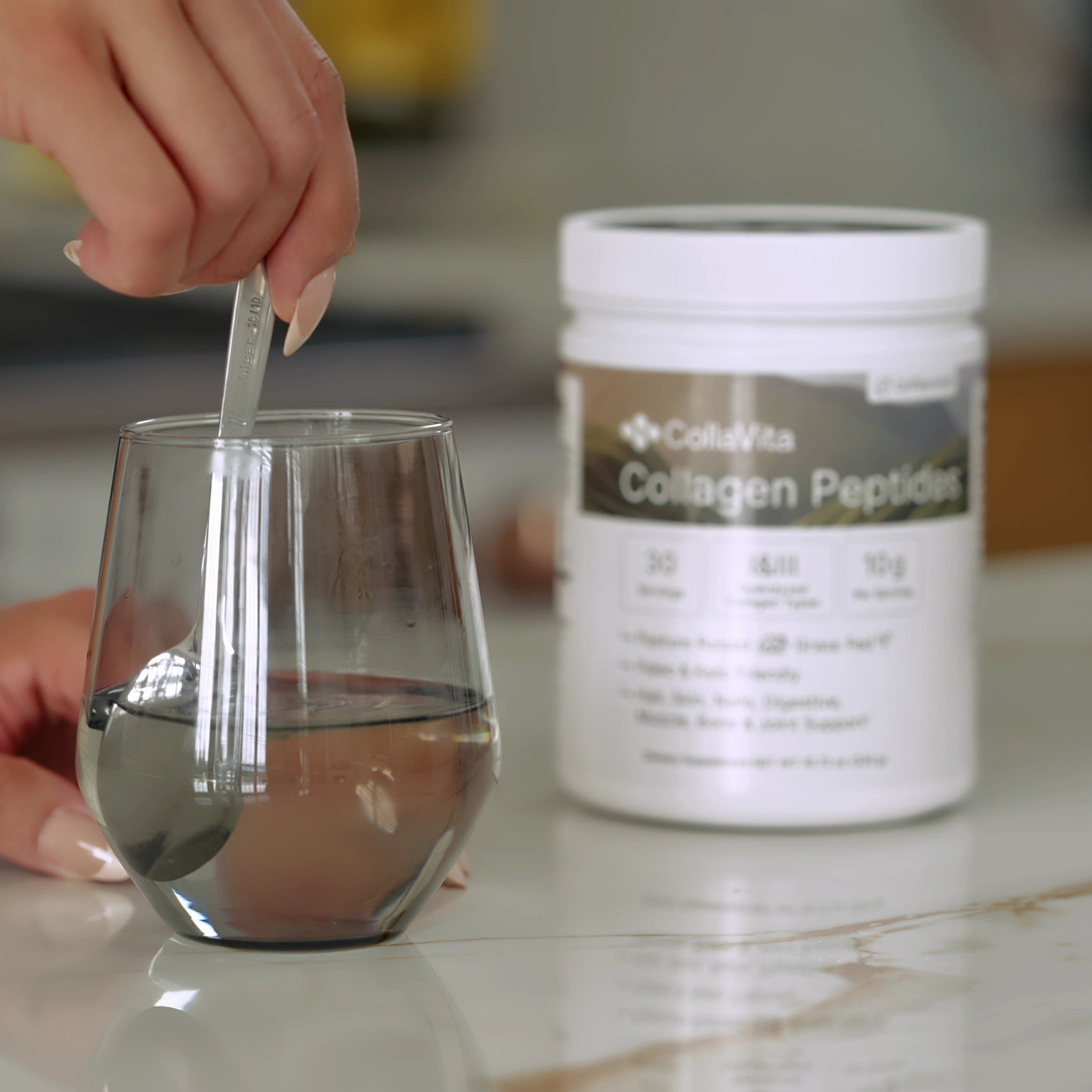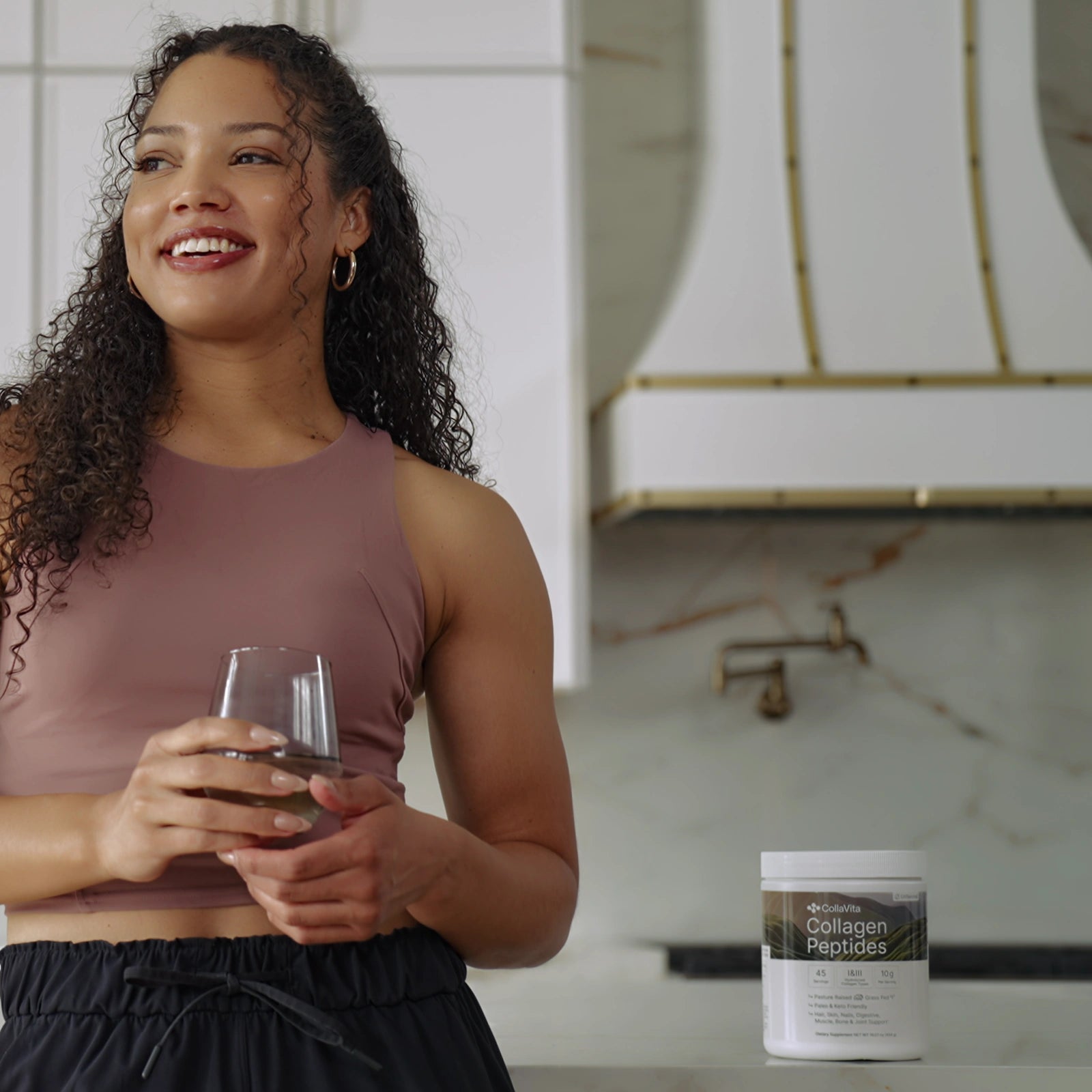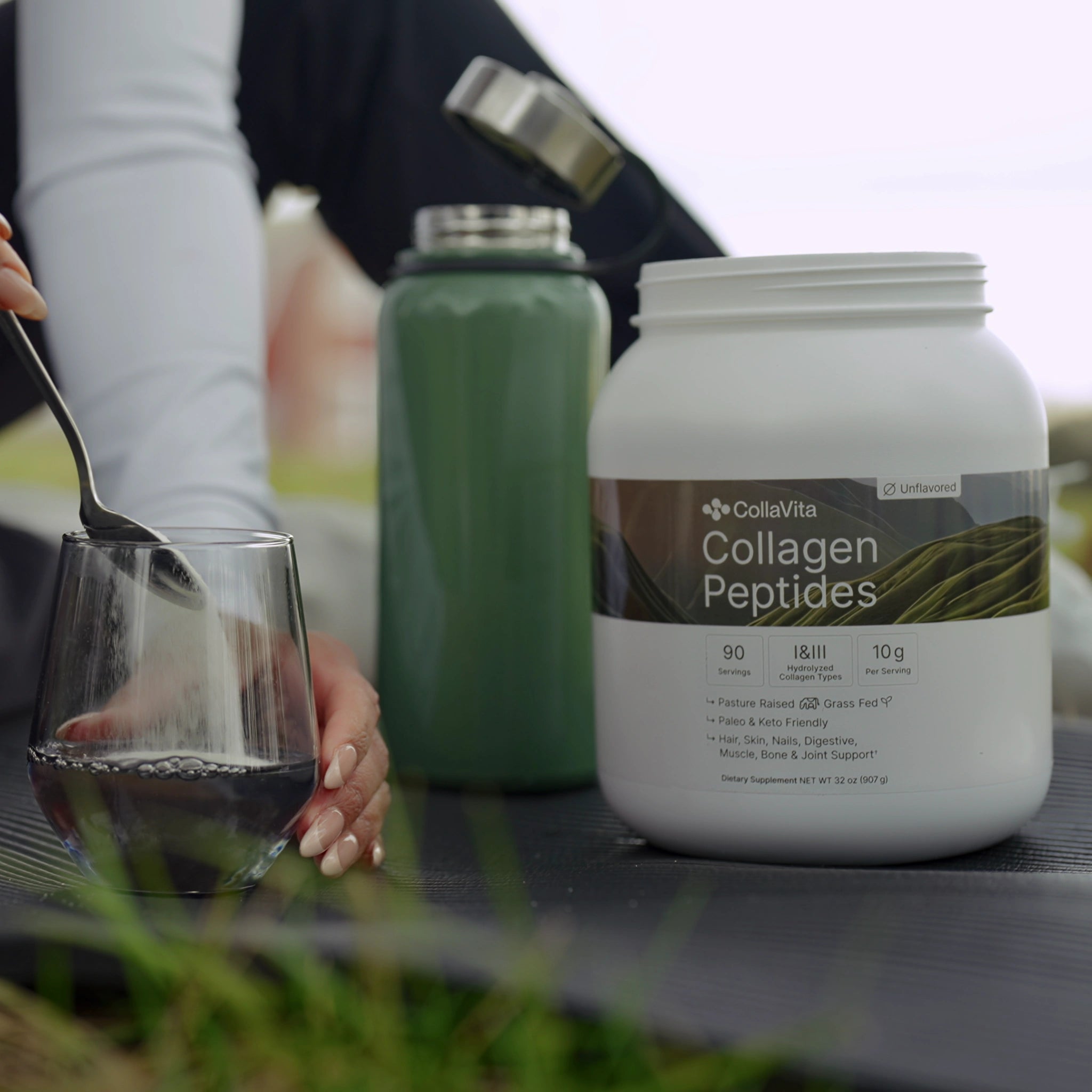What is Biotin?
Also referred to as vitamin B7 or vitamin H, biotin performs a number of essential bodily functions, including:
- Energy Production: It helps us convert fats and carbohydrates into energy. In other words, it converts what we eat into energy.
- Gene Expression and Cell Communication: Regulates how our cells use genetic information and communicate with each other.
- Hair, Skin and Nail Health: It keeps our hair, skin, and nails healthy. That's why it's also known as the beauty vitamin.
The American National Institute of Health recommends that adults get 30 micrograms of biotin and collagen supplements a day. For optimal health and to maintain healthy hair, skin, and nails, this is more than enough. A typical daily diet provides adequate biotin for most people. However, genetic factors, pregnancy, and smoking can cause biotin deficiency. Symptoms of deficiency include hair loss, skin problems, and weak nails.
Today, many people take biotin supplements, especially for healthier hair. However, due to biotin being a water-soluble vitamin, our body eliminates excess amounts through urine. If you are getting enough biotin, supplementary intake will not provide any additional benefits.
Biotin and Hair and Nails
Biotin helps enhance the structure of keratin, the primary building block of hair and nails. Therefore, biotin supports healthy hair and nails. However, scientists and dermatologists note that there is not enough scientific evidence that biotin supplements improve hair quality. Consequently, you should not expect miracles from biotin supplements, but they can still be a useful option to support your hair and nail health.
What is Collagen?
Collagen is a crucial protein structure found in tissues throughout our body. Most people associate collagen with the skin, but it is also found in a range of other body parts, including hair, nails, joints, cartilage, bones, and muscles. Collagen is a vital protein that supports the body's structure, and we feel the effects of its loss as we age.
Due to its high water content, collagen plays a role in maintaining an optimal internal moisture balance. Collagen and connective tissue are often used interchangeably. While hydration is essential for the proper functioning of every organ in the body, it is the skin's natural moisture content that gives it its firm appearance. Thus, the effects of collagen and biotin on the skin, joints, and internal organs vary depending on the type of collagen lost.
What are the Key Differences Between Biotin and Collagen?
Biotin is a vital nutrient that supports cell signaling, gene regulation, and energy production. Found in meat, fish, nuts, and vegetables, biotin is often used for hair, skin, and nail health. Compared to collagen, our biotin needs are lower, and 30 milligrams (mg) of biotin per day is more than enough, and you can easily get that much from food. This is because biotin is stored in specific organs and tissues.
Collagen is a unique protein present throughout the body, existing in various forms across different anatomical structures. As collagen is predominantly located in body parts that are typically not consumed, such as joints, skin, intestines, and the brain, it is infeasible to satisfy your collagen requirements through a regular diet. However, collagen is essential for many bodily functions, and dietary means alone cannot compensate for collagen insufficiency. Research after research has shown that collagen has positive effects on human health.
Over the course of twelve weeks, 72 healthy women who were 35 years of age or older were given a daily supplement that contained 2.5 g of collagen peptides, acerola fruit extract, vitamin C, zinc, biotin, and vitamin E. The supplement group's skin hydration, elasticity, roughness, and density all showed notable improvements, according to the study in Nutrients(1). These positive effects persisted during a four-week follow-up period without supplementation. The supplement was well tolerated by participants.
Below, you can check the comparison of biotin collagen supplements.
| Feature | Biotin | Collagen |
|---|---|---|
| Definition | It is also known as vitamin B7. | A structural protein found in tissues throughout the body. |
| Sources | Meat, fish, nuts, seeds, and vegetables. | Skin and bones of animals. |
| Functions | Converting nutrients into energy, gene expression, and cell signaling. | Supporting the structure of tissues (skin, hair, nails, joints, etc.). |
| Supplement Use | Hair, skin, and nail health. | Improving skin elasticity, reducing wrinkles, strengthening nails, and relieving joint pain. |
| Scientific Evidence | Inadequate | Hundreds of scientific evidence |
| Daily Requirement | 30 micrograms. | 2.5 grams to 30 grams. |
| Vegan/Vegetarian | Plant and animal origin. | Animal origin only. |
| Side Effects | May affect blood tests, and may cause acne. | There are no known significant side effects. |
Collagen with Biotin: A Powerful Combination
Collagen and biotin together are popular options for promoting the health of the skin, hair, and nails. While biotin encourages the health of the skin, hair, and nails by converting nutrients into energy, collagen strengthens nails, promotes joint health, increases skin suppleness, and lessens wrinkles. Combining the two supplements has the potential to be much more effective than taking either one alone, according to many experts.
A double-blind, placebo-controlled clinical trial evaluating the effects of a collagen-based drink supplement containing hydrolyzed fish collagen, chicken bone broth, eggshell membrane, biotin, and other ingredients over eight weeks. Consuming collagen hydrolysate significantly reduced wrinkles, roughness, and dryness in the face, according to the study. These results suggest that biotin, along with collagen and extra ingredients, contributes positively to skin structural maintenance over time, according to the study in the Journal of Clinical & Experimental Dermatology Research(2).
Biotin was also found to be effective in improving skin health, promoting wound healing, and supporting joint health, according to the study in Polymers(3). The findings suggest that collagen supplementation could be beneficial in treating multiple conditions, especially those related to aging and tissue degeneration.
Conclusion:
As you can see, biotin and collagen are quite beneficial on their own, but together, they can enhance their effects even more. It might be worth trying this duo to improve the health of your hair, skin, and nails. Of course, remember to consult a health professional before using supplements. Have a healthy and bright day!
FAQ
Below, you will find a list of questions and answers about using biotin and collagen together.
Are there different types of collagen, and which one works best with biotin?
Yes, there are different types of collagen, and each one performs different functions in our body. Type I collagen is typically the most compatible with biotin (Vitamin B7). In addition to being necessary for healthy skin, hair, and nails, biotin may work even better when combined with collagen.
How much collagen and biotin should I take daily?
The daily recommended intake of biotin for adults is approximately 30 milligrams. Supplements containing 2.5–20 grams of collagen are typically sufficient to meet collagen requirements. However, it is always best to get a doctor's okay before you take daily collagen.
How does collagen with biotin compare to collagen with Vitamin C?
Collagen and Biotin: Biotin is a B vitamin that supports hair, skin, and nail health. When used in combination with collagen, these two ingredients can especially improve skin elasticity and hydration. Biotin helps strengthen hair and nails by stimulating keratin production, while collagen maintains the structural integrity of the skin.
Collagen and Vitamin C: Vitamin C plays a critical role in collagen synthesis. Collagen is one of the basic building blocks of skin and connective tissues, and without vitamin C, collagen production cannot occur at an adequate level. Vitamin C helps strengthen collagen fibers by assisting in the process that modifies the amino acids proline and lysine. In addition, collagen with Vitamin C protects the skin against free radical damage thanks to its antioxidant properties.
How does collagen with biotin benefit men?
Collagen loss occurs more slowly in men than in women, but it manifests more acutely in men’s skin and hair. Combining collagen for men and biotin supplements substantially lessens problems like hair loss, which many men experience, particularly in their thirties. When taken together, these supplements have the potential to improve a man's general health in many ways, including his hair, skin, nails, and joints.
SOURCES
(1) - Bolke, L.; Schlippe, G.; Gerß, J.; Voss, W. A. Collagen Supplement Improves Skin Hydration, Elasticity, Roughness, and Density: Results of a Randomized, Placebo-Controlled, Blind Study. Nutrients 2019, 11, 2494.
(2) - A Multi-Type Collagen-Based Drink Supplement Significantly Improved Markers of Aging, both in vitro and in a Human Clinical Study Garth Lee, Virginia West, Tory Parker and David Vollmer
(3) - Wang, H. A Review of the Effects of Collagen Treatment in Clinical Studies. Polymers 2021, 13, 3868.

















